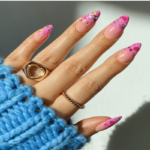Are you tired of waking up to puffy eyes in the morning that make you look and feel less than your best? Whether it’s due to lack of sleep, allergies, or other factors, dealing with puffiness around the eyes can be a common concern. In this guide, we’ll explore effective strategies and remedies to help you how to get rid of puffy under eyes and achieve a refreshed and vibrant appearance. From lifestyle changes to simple home remedies, let’s discover ways to tackle this common issue and bring back the sparkle to your eyes.
WHAT CAUSES BAGS UNDER THE EYES
There are several reasons people get puffy eyes, including:
ALLERGIES
Under-eye puffiness can often be intensified by congestion and inflammation resulting from allergies. When allergies trigger congestion in the nasal passages, it can restrict proper drainage, leading to fluid accumulation around the eyes. This fluid retention contributes to the appearance of puffiness, making it crucial to address both the underlying allergies and the associated symptoms to effectively alleviate under-eye swelling. Not only does it cause eye swelling, but allergies also cause face spuffy.
MEDICAL CONDITIONS
Swelling of the eyes can be attributed to certain health conditions, with thyroid problems being one such factor. Disorders affecting the thyroid gland can lead to changes in fluid balance and tissue inflammation, causing the eyes to become swollen. If you notice persistent eye swelling, especially in conjunction with other symptoms, it’s essential to consult with a healthcare professional for a thorough evaluation and appropriate management of any underlying health issues.
GENETICS
The presence of under-eye bags can often be a hereditary trait, passed down through family genetics. While lifestyle factors and aging can contribute to their appearance, a familial predisposition to under-eye bags implies that individuals may share a genetic tendency toward this particular physical characteristic. Understanding the genetic component of under-eye bags can help individuals manage expectations and explore both preventive measures and cosmetic interventions if desired.
NATURAL AGING PROCESS
As the aging process unfolds, a common occurrence is the loss of firmness in both the skin and underlying muscles. This natural progression is primarily attributed to a decrease in collagen and elastin production, essential proteins that contribute to skin elasticity and tightness. The weakening of muscles over time further accentuates this phenomenon, leading to sagging and a loss of the tautness that characterizes youthful skin. While aging is inevitable, adopting skincare routines, a healthy lifestyle, and, if needed.
HIGH-SALT DIET
Consuming a diet rich in salty foods can contribute to water retention in the body, resulting in swelling or edema. The excess sodium in salty foods disrupts the balance of fluids in the body, prompting it to retain water to dilute the elevated salt concentration. This retention of water can manifest as swelling, particularly in areas such as the hands, feet, and face. Monitoring and moderating salt intake, along with maintaining adequate hydration, are crucial steps to prevent and alleviate this form of swelling caused by dietary choices.
HOW TO REDUCE PUFFY EYES
“How to get rid of puffy eyelids” is definitely a question that haunts many people. Here are some solutions you can take to minimize this condition.
AT-HOME TREATMENTS
COLD COMPRESS
Applying a cold compress to your eyes can help reduce puffiness by constricting blood vessels and minimizing swelling. You can use a chilled cucumber slice, a cold spoon, or a clean cloth soaked in cold water. Gently place it over your closed eyes for about 10-15 minutes.
TEA BAGS
Caffeine and antioxidants in tea can be beneficial for puffy eyes. Steep two tea bags (green or black tea) in hot water, then let them cool in the refrigerator. Place the cooled tea bags over your closed eyes for around 15 minutes to help reduce swelling.
ALOE VERA GEL
Aloe vera has anti-inflammatory properties that can soothe puffy eyes. Apply a small amount of pure aloe vera gel to the affected areas and gently massage. Leave it on for about 15 minutes before rinsing with cool water.
HYDRATION AND SLEEP
Ensure you stay well-hydrated and get enough quality sleep. Dehydration and lack of sleep can contribute to puffiness. Drink plenty of water throughout the day, and establish a consistent sleep routine with 7-9 hours of sleep per night to promote overall eye health and reduce puffiness.
CAFFEINE
Caffeine acts as a vasoconstrictor, narrowing blood vessels. Numerous cosmetic brands offer eye creams containing caffeine, aiming to diminish under-eye puffiness. Another option is to place cooled tea bags, preferably caffeinated black tea, on closed eyes to help alleviate puffiness.
MEDICAL OPTIONS FOR UNDER-EYE BAGS
If you’re frustrated with under-eye bags, consider these medical interventions that have the potential to enhance or eliminate them
NON SURGICAL OPTIONS
Dermal Fillers: Injectable dermal fillers containing hyaluronic acid can be used to add volume and reduce the appearance of under-eye bags. These fillers help smooth the area and create a more youthful and refreshed look.
Botox Injections: Botox, or similar neurotoxin injections, can be strategically administered to relax the muscles around the eyes. This can reduce the prominence of dynamic wrinkles and fine lines, including those associated with under-eye bags.
Laser Therapy: Non-surgical laser treatments, such as laser skin resurfacing or fractional laser therapy, can target the underlying causes of under-eye bags. These procedures stimulate collagen production, tighten the skin, and improve overall skin texture, contributing to a reduction in puffiness and a more rejuvenated appearance.
EYE BAG SURGERY (BLEPHAROPLASTY)
For under-eye bags, there’s a surgery called blepharoplasty. In this procedure, extra skin, fat, or muscle is taken away or adjusted to fix the puffiness and drooping around the eyes. The surgery can be done on the upper or lower eyelids, or both, depending on how much help is needed. The goal of this surgery is to make the eyes look smoother and younger by dealing with the puffiness and creating a nicer eye shape that lasts a long time.
WHEN TO SEE YOUR DOCTOR
Swollen eyes usually aren’t a sign of a serious health problem. Still, it’s a good idea to reach out to your doctor if you experience:
- Persistent puffy eyes for an extended period.
- Pain, discomfort, or significant swelling in or around your eyes.
- Symptoms appearing in other parts of your body.
If you’re experiencing symptoms like swollen eyes, it could be a sign of a more severe health problem, including conditions such as conjunctivitis, blepharitis, ptosis, cellulitis, dermatitis, or thyroid eye disease. If you notice any of these symptoms, seeking medical advice is advisable for proper evaluation and diagnosis.
FAQ
1. Can eye bags go away?
Eye bags caused by factors like lack of sleep, allergies, can often improve with lifestyle changes, proper sleep, and home remedies. However, if eye bags are a result of aging or hereditary factors, they may not fully disappear.
2. Can drinking water reduce puffy eyes?
Absolutely! Drinking more water can make the puffiness around your eyes go down. Also, check how your skin looks, especially on days when it doesn’t seem quite right, considering its color, tone, and feel.
3. Can Ice remove eye bags?
Yes. Putting ice on your face can help reduce puffiness and eliminate under-eye bags. It might also ease inflammation from things like acne or rosacea.
4. Does warm water get rid of puffy eyes?
Yes. Warm compresses are widely favored as a home remedy for various purposes. When applied to the eye, they can enhance circulation, alleviate inflammation, and relieve swollen eyelids by unclogging them.
5. Do eye bags go away with sleep?
Not completely. Adequate sleep can diminish eye bag appearance by reducing fluid retention and promoting skin health, but complete elimination may not occur due to various contributing factors.
CONCLUSION
In conclusion, effectively addressing and reducing puffy eyes involves a combination of lifestyle changes, such as getting sufficient sleep, managing stress, and adopting a healthy diet. Additionally, incorporating remedies like cold compresses and proper hydration can contribute to diminishing puffiness and promoting overall eye health. It’s essential to tailor strategies based on individual needs and consult with healthcare professionals for personalized advice on addressing persistent puffy eyes.







